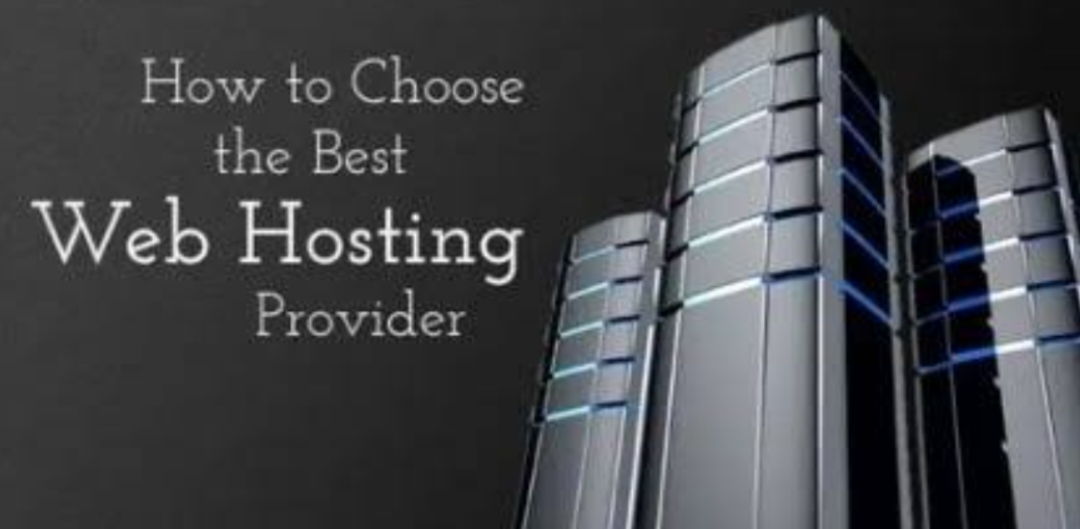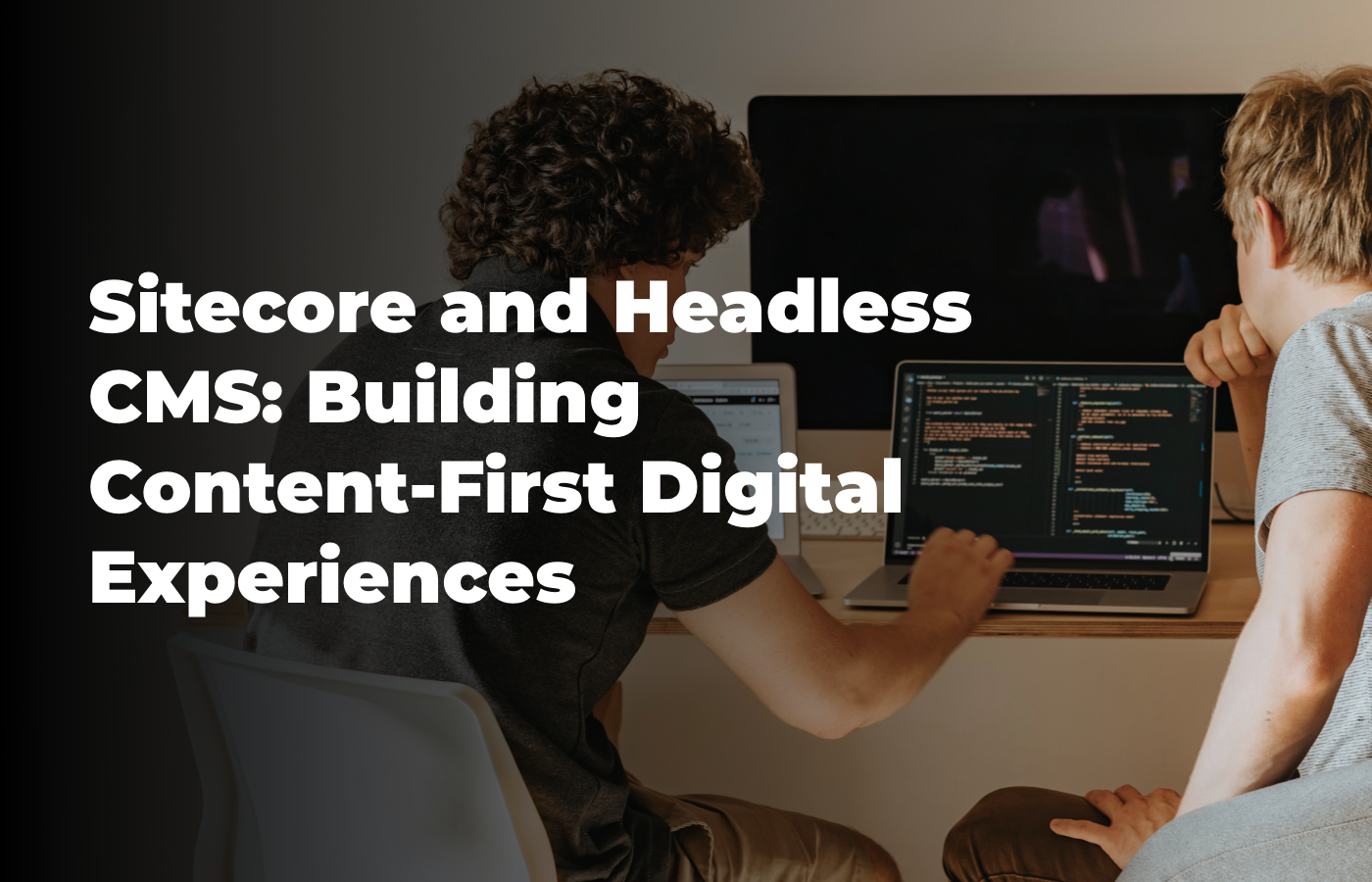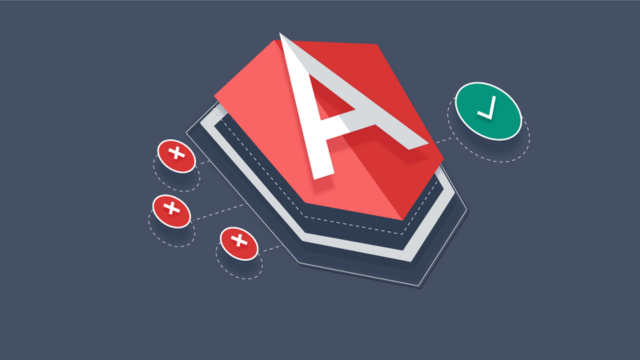7 tips to choose the best Hosting

When it comes to choosing the best hosting provider in 2024, there are several factors to consider. From uptime and reliability to security measures and customer support, each aspect plays a crucial role in ensuring a smooth and efficient hosting experience. In this article, we will explore seven tips to help you choose the best hosting provider for your needs.
Key Takeaways
- Consider the uptime and reliability of the hosting provider.
- Evaluate the scalability and flexibility options offered.
- Look for robust security measures and data protection.
- Check the quality and availability of customer support.
- Consider the ease of use and user-friendly control panel.
What to consider when choosing a hosting provider
Uptime and reliability
When it comes to choosing a hosting provider, uptime and reliability are crucial. We want our website to be up and running smoothly without any interruptions. A reliable hosting provider ensures that our website is accessible to visitors at all times. We don’t want our website to be down when potential customers are trying to access it.
To ensure uptime and reliability, we look for hosting providers that have a strong track record of uptime. We also consider their infrastructure and network redundancy. A hosting provider with multiple data centers and backup systems is more likely to provide a reliable service.
Here are some tips to consider when evaluating the uptime and reliability of a hosting provider:
- Check their uptime guarantee and SLA (Service Level Agreement)
- Look for customer reviews and testimonials about their reliability
- Consider their server monitoring and maintenance practices
Remember, a reliable hosting provider is the foundation of a successful website!
Scalability and flexibility
When it comes to choosing a hosting provider, scalability and flexibility are key factors to consider. You want a hosting solution that can grow with your website and adapt to your changing needs. Whether you’re starting small or have plans for rapid growth, it’s important to choose a provider that offers scalable hosting options.
One option to consider is cloud hosting, which allows you to easily scale your resources up or down as needed. With cloud hosting, you have the flexibility to add more server resources when your website experiences high traffic or upgrade to a higher plan when your website grows.
Another important factor to consider is upgradability. You want a hosting provider that allows you to easily upgrade your hosting plan as your website grows. Look for providers that offer seamless upgrades without any downtime or data loss.
In addition to scalability, flexibility is also important. You want a hosting provider that offers a wide range of features and customization options. Look for providers that offer a variety of hosting plans and allow you to easily customize your server settings to meet your specific needs.
When considering scalability and flexibility, it’s important to think about the future of your website. Choose a hosting provider that can support your long-term goals and provide the scalability and flexibility you need to succeed.
Security measures
When it comes to choosing a hosting provider, security measures should be at the top of your priority list. We want to make sure our website and data are safe from any potential threats.
Here are some key security features to look for:
- Firewall protection: A strong firewall helps block unauthorized access and protects against malicious attacks.
- Malware scanning and removal: Regular scans for malware and quick removal are essential to keep our website clean and secure.
- Regular software updates: Hosting providers should regularly update their software to patch any vulnerabilities and ensure optimal security.
- Secure data centers: Hosting providers should have secure data centers with physical security measures in place to protect our data.
Remember, a secure hosting provider is the foundation for a safe and reliable website!
Customer support
When it comes to customer support, we’ve got your back. Our team is available 24/7 to assist you with any questions or issues you may have. Whether it’s a simple inquiry or a complex problem, we’re here to help.
- Reach out to us via live chat, email, or phone, and we’ll respond promptly.
- Our knowledgeable support staff is trained to provide quick and effective solutions.
- We understand the importance of your website’s uptime, so we prioritize resolving any issues as soon as possible.
Remember, your satisfaction is our top priority.
Ease of use
When choosing a hosting provider, ease of use is an important factor to consider. We want a hosting service that is user-friendly and doesn’t require a lot of technical expertise. With a simple and intuitive control panel, managing our website becomes a breeze. We can easily install applications, manage domains, and make changes to our website without any hassle.
In addition, a hosting provider that offers a one-click installation feature for popular content management systems like WordPress can save us a lot of time and effort. This means we can quickly set up our website without having to go through complicated installation processes.
To make things even easier, some hosting providers offer drag-and-drop website builders. These tools allow us to create a professional-looking website without any coding knowledge. We can simply choose a template, customize it to our liking, and publish our website in no time.
Overall, choosing a hosting provider that prioritizes ease of use can save us time and frustration, allowing us to focus on what really matters – building and growing our website.
Price and value for money
When it comes to choosing a hosting provider, price is definitely an important factor to consider. But we shouldn’t just focus on the cheapest option. We need to find a balance between affordability and quality. Look for hosting plans that offer a good value for money.
Here are a few tips to help you make the right choice:
- Compare prices from different providers and consider the features they offer.
- Look for discounts or promotions that can help you save money.
- Read reviews and customer testimonials to get an idea of the quality of service.
Remember, the cheapest option may not always be the best. It’s important to consider the overall value you’re getting for your money.
Different types of hosting options
Shared hosting
Shared hosting is a popular choice for small websites and blogs. It’s affordable and easy to set up. However, it may not be the best option if you expect high traffic or need more control over your server. Here are a few things to consider:
- Limited resources: With shared hosting, you share server resources with other websites, which can affect performance.
- Security risks: Since multiple websites are hosted on the same server, there is a higher risk of security breaches.
- Lack of customization: Shared hosting often has limitations on software and configurations you can use.
If you’re just starting out and don’t expect a lot of traffic, shared hosting can be a good choice. But if you’re planning to grow your website or need more control, you might want to consider other hosting options.
Virtual private server (VPS) hosting
When it comes to hosting, Virtual private server (VPS) hosting is a game-changer. With VPS hosting, you get the best of both worlds – the affordability of shared hosting and the control and flexibility of a dedicated server.
Here are a few reasons why VPS hosting is worth considering:
- Scalability: Need more resources? No problem! VPS hosting allows you to easily scale up or down as your website needs change.
- Customization: With VPS hosting, you have the freedom to customize your server settings and software to meet your specific requirements.
- Reliability: Say goodbye to downtime! VPS hosting offers high uptime and stability, ensuring your website is always accessible.
So, if you’re looking for a hosting solution that offers the perfect balance of affordability, control, and reliability, VPS hosting is the way to go!
Dedicated server hosting
When it comes to hosting, dedicated server hosting is the real deal. With dedicated server hosting, you get an entire server to yourself, giving you maximum control and flexibility. No more sharing resources with other websites! It’s like having your own private playground.
Here are a few reasons why dedicated server hosting is a great choice:
- Unparalleled performance: With dedicated server hosting, you don’t have to worry about other websites hogging resources. Your website will have all the power it needs to perform at its best.
- Enhanced security: Since you’re the only one using the server, you have complete control over its security. You can implement your own security measures and ensure that your website is protected from any potential threats.
- Scalability: Dedicated server hosting allows you to easily scale your resources as your website grows. You can add more RAM, storage, or processing power whenever you need it.
So, if you’re looking for ultimate control, performance, security, and scalability, dedicated server hosting is the way to go!
Cloud hosting
Cloud hosting is a popular choice for many websites because of its scalability and flexibility. With cloud hosting, your website is hosted on a network of virtual servers, allowing for easy resource allocation and on-demand scaling. This means that your website can handle sudden traffic spikes without any downtime. Cloud hosting also offers high reliability, as your website is not dependent on a single physical server. Additionally, cloud hosting providers often have advanced security measures in place to protect your data. Here are some key benefits of cloud hosting:
- Scalability: Easily scale your resources as your website grows.
- Flexibility: Customize your hosting environment to meet your specific needs.
- Reliability: Enjoy high uptime and minimal downtime.
- Security: Benefit from advanced security measures to protect your website and data.
In conclusion, cloud hosting is a flexible and reliable option for hosting your website. It provides scalability, flexibility, and enhanced security, making it a popular choice for businesses of all sizes.
Factors to consider for website performance
Server location
When it comes to website performance, server location plays a crucial role. The closer your server is to your target audience, the faster your website will load. This means less waiting time for your visitors and a better user experience. So, make sure to choose a hosting provider that offers server locations in the regions where your target audience is located.
Additionally, having servers in multiple locations can also improve the reliability and availability of your website. If one server goes down, the traffic can be automatically redirected to another server, ensuring that your website stays up and running.
Remember, the right server location can make a big difference in the speed and performance of your website. So, don’t overlook this important factor when choosing a hosting provider.
Bandwidth and data transfer
When considering bandwidth and data transfer, it’s important to choose a hosting provider that offers ample resources. This ensures that your website can handle high traffic and large file transfers without experiencing slowdowns or downtime. Additionally, look for hosting plans that offer unlimited bandwidth to avoid unexpected charges or restrictions. It’s also worth considering a content delivery network (CDN), which can help optimize data transfer and improve website performance. By prioritizing these factors, you can ensure a smooth and seamless experience for your website visitors.
Server resources
When considering server resources, it’s important to ensure that your hosting provider offers enough CPU and RAM to handle your website’s needs. You don’t want your site to be slow or crash because of insufficient resources. Additionally, check if the hosting provider allows you to easily upgrade or downgrade your resources as your website grows or changes. Flexibility is key!
Another factor to consider is the storage capacity provided by the hosting provider. Make sure they offer enough space for your website files, databases, and any other data you need to store. Running out of storage can lead to issues and downtime.
Lastly, don’t forget to inquire about the bandwidth limits. Bandwidth determines how much data can be transferred between your website and its visitors. Ensure that the hosting provider offers enough bandwidth to handle your website’s traffic without any slowdowns or additional charges.
Content delivery network (CDN)
When it comes to website performance, Content delivery network (CDN) plays a crucial role. A CDN is a network of servers located around the world that helps deliver your website’s content quickly to users. By distributing your website’s files across multiple servers, a CDN reduces latency and improves loading times.
Here are a few reasons why you should consider using a CDN:
- Faster website loading times: With a CDN, your website’s content is cached on servers closer to your users, resulting in faster loading times.
- Improved user experience: Faster loading times lead to a better user experience, reducing bounce rates and increasing engagement.
- Global reach: A CDN allows your website to reach users from different geographical locations, ensuring a seamless experience for all.
In conclusion, incorporating a CDN into your hosting strategy can significantly enhance your website’s performance and user experience.
Important features to look for in a hosting provider
Control panel
When choosing a hosting provider, it’s important to consider the control panel they offer. The control panel is where you’ll manage your website, so it needs to be user-friendly and intuitive. Look for a control panel that allows you to easily install and manage applications, set up email accounts, and access important features like backups and security settings.
cPanel is a popular control panel option that many hosting providers offer. It provides a simple and straightforward interface, making it easy for beginners to navigate. With cPanel, you can easily manage your website files, databases, and domains.
If you prefer a different control panel, make sure it offers similar functionality and ease of use. A good control panel can save you time and frustration, allowing you to focus on building and growing your website.
Here are some key features to look for in a control panel:
- User-friendly interface: The control panel should be easy to navigate and understand.
- One-click installations: Look for a control panel that allows you to quickly install popular applications like WordPress.
- Backup and restore options: Ensure the control panel has built-in backup and restore functionality.
- Security settings: Check if the control panel offers options for managing website security, such as SSL certificates and firewall settings.
Remember, the control panel is your gateway to managing your website, so choose one that suits your needs and preferences.
Backup and restore options
When it comes to backup and restore options, reliability is key. We want to make sure that our data is safe and can be easily recovered in case of any mishaps. That’s why it’s important to choose a hosting provider that offers regular backups and a simple restore process.
In addition to regular backups, it’s also worth considering automated backups. This feature can save us time and effort by automatically creating backups at regular intervals, ensuring that we always have the latest version of our website backed up.
Another important aspect to consider is the storage location of the backups. It’s ideal to have backups stored in a separate location from the main server to ensure that they are not affected by any issues that may occur with the server.
Lastly, it’s a good idea to check if the hosting provider offers one-click restore options. This can make the restore process quick and hassle-free, allowing us to get our website back up and running in no time.
SSL certificate
When choosing a hosting provider, it’s crucial to consider the SSL certificate. This specially important for games like Minecraft. If you were looking for the best minecraft hosting provider, this certificate ensures that your website is secure and that any data transmitted between your website and your visitors is encrypted. Without an SSL certificate, your website may be vulnerable to hackers and your visitors’ information may be at risk. Make sure your hosting provider offers a free or affordable SSL certificate to protect your website and gain the trust of your visitors.
Here are a few key points to keep in mind:
- An SSL certificate is essential for securing your website and protecting your visitors’ data.
- Look for hosting providers that offer a free or affordable SSL certificate.
- Check if the SSL certificate is easy to install and manage.
Remember, having an SSL certificate is not only important for security but also for improving your website’s search engine ranking. So don’t overlook this crucial aspect when choosing a hosting provider.
Email hosting
When it comes to email hosting, we want a provider that offers reliable and secure email services. Security is crucial to protect our sensitive information from hackers and malware. We also need a provider that offers spam filtering to keep our inbox clean and free from unwanted emails.
In addition, it’s important to consider the storage capacity provided by the hosting provider. We want to make sure we have enough space to store all our emails and attachments without running out of storage.
Lastly, ease of setup and management is key. We want a hosting provider that makes it simple to set up our email accounts and manage them efficiently. A user-friendly interface and intuitive controls can save us time and frustration.
To summarize, when choosing an email hosting provider, prioritize security, spam filtering, storage capacity, and ease of setup and management.
Considerations for website security
Firewall protection
When it comes to website security, firewall protection is a must-have. It acts as a barrier between your website and potential threats, blocking unauthorized access and malicious attacks. With a reliable firewall in place, you can rest assured that your website is well-protected.
Here are a few key benefits of firewall protection:
- Prevents unauthorized access: A firewall monitors incoming and outgoing traffic, ensuring that only legitimate requests are allowed.
- Blocks malicious attacks: It detects and blocks suspicious activities, such as hacking attempts and DDoS attacks.
- Filters out harmful content: A firewall can filter out harmful content, such as malware and viruses, before it reaches your website.
Remember, a strong firewall is essential for keeping your website safe and secure. Don’t compromise on security when choosing a hosting provider.
Malware scanning and removal
When it comes to website security, malware scanning and removal is crucial. We take this seriously and have robust measures in place to protect your website from any malicious attacks. Our advanced scanning tools constantly monitor your site for any signs of malware and promptly remove any threats detected. With our proactive approach, you can have peace of mind knowing that your website is safe and secure.
In addition to malware scanning, we also regularly update our software to ensure that your website is protected against the latest security vulnerabilities. Our secure data centers provide an extra layer of protection, keeping your data safe from unauthorized access. Trust us to keep your website secure and free from malware.
If you have any concerns about the security of your website, our team of experts is always available to assist you. We are here to help you with any security-related issues and provide guidance on best practices to keep your website safe.
Regular software updates
Regular software updates are crucial for the security and performance of your website. Outdated software can leave your site vulnerable to hacks and malware. By regularly updating your software, you ensure that you have the latest security patches and bug fixes. This helps to protect your website and keep it running smoothly.
In addition to security, regular software updates also bring new features and improvements. Stay ahead of the curve by keeping your hosting provider’s software up to date. This way, you can take advantage of the latest technologies and enhancements.
To make sure you never miss an update, choose a hosting provider that offers automatic software updates. This saves you time and effort, as the updates are applied automatically without you having to manually install them.
Remember, regular software updates are a simple yet effective way to ensure the security and performance of your website.
Secure data centers
When it comes to website security, secure data centers play a crucial role. These centers are equipped with advanced security measures to protect your website and data from unauthorized access and physical threats. With state-of-the-art surveillance systems, access controls, and redundant power and cooling systems, you can have peace of mind knowing that your website is hosted in a secure environment.
In addition to secure data centers, it’s important to choose a hosting provider that offers firewall protection. Firewalls act as a barrier between your website and potential threats, blocking malicious traffic and preventing unauthorized access. Look for a hosting provider that includes firewall protection as part of their security measures.
Regular software updates are another essential aspect of website security. Hosting providers should regularly update their server software to patch any vulnerabilities and ensure optimal security. By keeping your server software up to date, you can minimize the risk of security breaches and protect your website from potential threats.
When selecting a hosting provider, prioritize security features like secure data centers, firewall protection, and regular software updates. By choosing a hosting provider that prioritizes security, you can safeguard your website and provide a secure browsing experience for your visitors.
Conclusion
Choosing the best hosting for your website can be a daunting task, but with these 7 tips, you’ll be well-equipped to make an informed decision. Remember to consider your specific needs, compare different hosting providers, and read customer reviews. Don’t forget to prioritize reliability and customer support. Happy hosting!
Frequently Asked Questions
1. How important is uptime and reliability when choosing a hosting provider?
Uptime and reliability are crucial factors to consider when choosing a hosting provider. A reliable hosting provider ensures that your website is accessible to visitors at all times and minimizes the risk of downtime, which can negatively impact your online presence and business operations.
2. What is the difference between shared hosting and dedicated server hosting?
Shared hosting involves multiple websites sharing resources on a single server, while dedicated server hosting provides a dedicated server exclusively for your website. Shared hosting is more cost-effective and suitable for small websites with low traffic, while dedicated server hosting offers higher performance and flexibility for larger websites with high traffic.
3. How important is customer support when selecting a hosting provider?
Customer support is essential when choosing a hosting provider. A responsive and knowledgeable support team can help you resolve technical issues quickly and provide guidance on optimizing your website’s performance. Look for hosting providers that offer 24/7 customer support through various channels such as live chat, phone, and email.
4. What security measures should I look for in a hosting provider?
When choosing a hosting provider, it is important to consider their security measures. Look for providers that offer firewall protection, regular malware scanning and removal, and secure data centers. Additionally, ensure that the hosting provider keeps their software and server infrastructure up to date to mitigate potential security vulnerabilities.
5. What is a content delivery network (CDN) and why is it important?
A content delivery network (CDN) is a network of servers located in different geographical locations that cache and deliver website content to users based on their location. CDN improves website performance by reducing latency and improving page load times. When choosing a hosting provider, consider if they offer integrated CDN services or support third-party CDN integration.
6. How can I assess the scalability and flexibility of a hosting provider?
Scalability and flexibility are important considerations for a hosting provider, especially if you anticipate your website’s growth or need to accommodate sudden traffic spikes. Look for providers that offer scalable hosting plans, such as cloud hosting or virtual private server (VPS) hosting, which allow you to easily upgrade or downgrade resources based on your needs.
Meta Description
Discover 7 tips to choose the best hosting provider. Learn about uptime, scalability, security, customer support, ease of use, price, and more. Find the perfect hosting option for your website!






